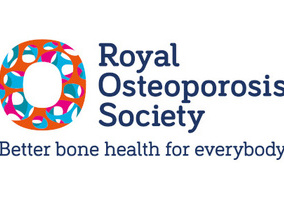The last few years have seen significant changes in society which are unprecedented in nature and scale. The impact of these can be felt across the charity sector. For many organisations, delivery and financial models are under pressure or in some cases no longer viable. We are all adapting to having to make decisions in a highly uncertain environment. Whilst change may be forced upon us or we may choose it, delivering it successfully in the current climate is challenging.
The Royal Society of Medicine is one of the most highly regarded and trusted voices in healthcare education in the UK and around the world. The pandemic brought with it an urgent need for healthcare professionals to learn more about Covid-19, a new virus, and to rapidly share knowledge, understanding and experience. At the same time, on-going education to healthcare professionals needed to continue. Our traditional model of in-person education was no longer an option and the closure of our headquarters in lockdowns meant that our commercial trading subsidiary was not able to generate revenue from hospitality to support our charitable activities.
Over the last two years we have had no option but to change and have also sought out change. We have drawn on the wisdom and support of many, both within the Society and externally. Some things we knew theoretically beforehand, we now know by hard experience. As we come out of the pandemic there is still much to do, and we consider ourselves a work in progress. But reflecting now on delivering change over the course of my career, and in particular the last couple of years, there are some clear pointers that I have learnt.
Tip 1: Be clear about your vision and mission and how change will deliver these
Charities need to be clear about their vision and mission in order to know how to operate on a day-to-day basis. Having clear strategic objectives enables charities to decide what they will do to maximise their impact. It also gives clarity as to what they won’t do and empowers them to say no to proposed activities that do not fulfil strategic priorities.
Proposed reactive or proactive changes all need to be assessed in the context of a charity’s vision and mission and overall strategic objectives and priorities. This can involve some very hard and possibly unpopular decisions. A lot of time and money can be wasted in organisations by individuals or teams focusing on new non-core projects, or on areas that will not help to fulfil strategic goals.
Tip 2: Gather the data and evidence to help you understand the needs of your stakeholders
Whatever the change you are contemplating, it is vital to consider relevant data and evidence and views of stakeholders. It can be tempting to make quick decisions, and in some situations, you will have no choice. Whatever your timeframe for decision making, it’s important to understand as much as possible about your stakeholders; how they are behaving and interacting with your organisation and what the trends are over time. It is important also to be aware of what is happening in your sector and what might be coming up on the horizon.
Being on top of this means you will be making decisions with the best possible information, allowing you to align more closely to the needs of your stakeholders and increasing your chance of success.
Tip 3: Map out the process and timetable for change, the skills and infrastructure you need and the financial implications and risks
Getting the basics right is key. Even if you are clear why a change is needed, planning the implementation is crucial. You need a clear map setting out the process and a timetable you will follow.
In addition, you need to ensure that you have the right people with the right skills and consider the necessary infrastructure. By that, I mean the physical space requirements, technology and systems, processes, culture and ways of working. Delivering change can be difficult and you don’t want to make it even harder for staff and volunteers by having a poor infrastructure in place.
As part of your planning, you will need to ensure that you have considered the financial implications of your proposed change and the possible risks and mitigations. There may be financial risks that need to be considered but there may be other risks that may for example be reputational or legal in nature.
Tip 4: Communicate, communicate and communicate
Ensuring that your stakeholders understand your strategy and your operational plans is crucial for success at any time. Good external and internal communications for a charity are essential.
In uncertain times the need for clear, regular and engaging communications increases significantly. This should not just be one-way communications from the chief executive. It’s important that leaders (whether on the executive or heads of departments) are visible and share information regularly.
Having forums that provide opportunities for staff to raise their concerns, ask questions and put forward ideas is key to engaging your people. And not all forums need to be formal meetings either. There is a lot to be said about social gatherings, ‘lunch and learn’ sessions or other meetings where different staff or stakeholders will be mixing. In this new hybrid world of working, we also need to find ways to ensure that people are not missing out on opportunities to interact with the organisation.
Tip 5: Monitor, evaluate, adapt and don’t be afraid to admit mistakes
It’s crucial to keep activities under review and to have a robust process in place to monitor whether you are meeting your Key Performance Indicators as well as other metrics. This will provide you with a gauge of how the organisation is performing.
By being clear on your strategy, aligning your operational plans to it and then regularly evaluating progress, you have more chance of being successful. By catching issues early or identifying a likely future problem, you will be able to pivot and adapt your plans as needed.
Mistakes do and will happen – even for the most successful organisation. And when they do, you shouldn’t be afraid to hold your hands up and admit mistakes. The key is how you deal with those mistakes. If you can be transparent about the issue and bring people along with you, then all the better.
Conclusion
My 17-year career as a charity leader, and before that working in finance, has shown me how people are crucial to delivering successful outcomes for any organisation. Ensuring they have the right understanding, infrastructure and culture to embrace change willingly is a challenge for all organisations. Certainly, without the herculean efforts of the staff and volunteers at the RSM, we could not have navigated our way through the pandemic.
It is an absolute privilege to be working for an institution that is making an impact to so many people’s lives. Feeling a connection to the purpose of the charity has made all the difference to how I lead the RSM, particularly as we instigate the changes needed to ensure a long and healthy future for the organisation.
Michele Acton is chief executive at the Royal Society of Medicine
Related articles












